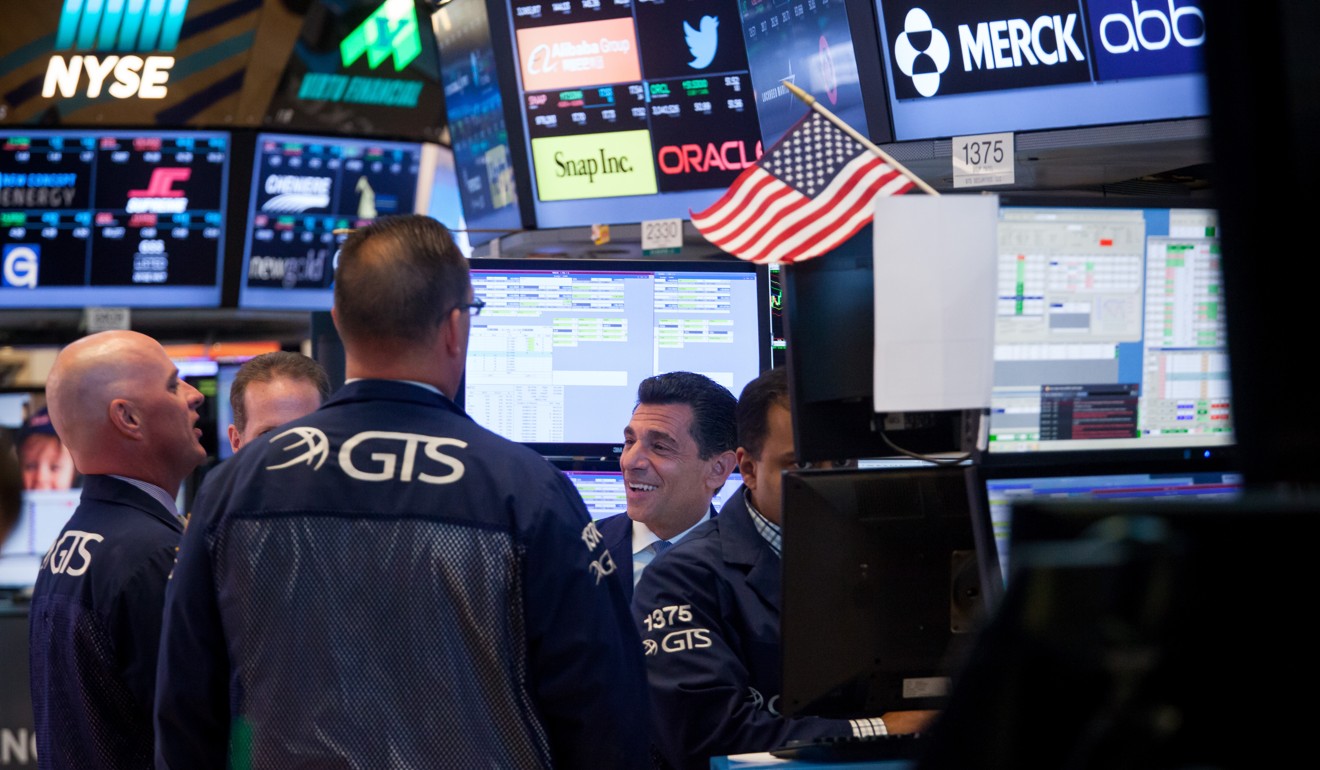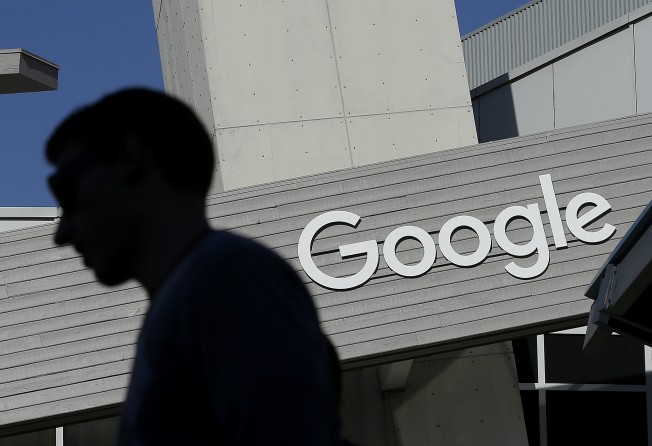
China’s CSI 300 Index drops most in two weeks, while Hang Seng knocked for a 156-point loss as tech sell-off intensifies
CSI Index tumbles 0.8 per cent on Wednesday, ending a four-session winning streak; Hang Seng Index drops 0.6 per cent to close at 25,683.5

Chinese mainland stocks fell on Wednesday, sending the CSI 300 Index of big companies to its steepest decline in two weeks, on concern the recent gains were excessive after equities were added to the MSCI’s global benchmarks last week.
The CSI 300 slid 0.8 per cent, or 28.55 points, to 3,646.17 at the close, capping the biggest drop since June 14 and snapping a four-day streak of gains. Trading volumes on the measure were 13 per cent below the five-day average.
The Shanghai Composite Index lost 0.6 per cent, or 18 points, to 3,173.2 and the ChiNext gauge of smaller firms also sank 0.6 per cent. Hong Kong stocks fell as well as Google’s record antitrust fine hurt the sentiment on technology companies.
The 14-day relative strength index for the CSI 300, a technical indicator measuring the rate of stocks’ rises or declines in a period of time, was higher than 70 over the past three days. Readings above 70 usually indicate that shares are over-bought. The CSI 300 had climbed 3.6 per cent through Tuesday since index compiler MSCI announced last Wednesday plans to include 222 mainland-traded big-cap companies in its emerging-markets and global indices for the first time.
“It’s more of a technical sell-off today,” said Wang Chen, a partner with Xufunds Investment Management in Shanghai. “Short-term trading in big-cap stocks is already very crowded now and the sector may face more sell-off pressure and wilder swings going forward.’’
Nine out of the 10 industry groups on the CSI 300 fell on Wednesday. A gauge of consumer-staples companies, the best-performing sector this year, slumped 1.4 per cent to rank as the biggest decliner among the 10 sub-indices. The loss pared the measure’s gain to 19 per cent in 2017.
Among companies, liquor giant Kweichow Moutai retreated 1.8 per cent to 475.30 yuan after rising to a record on Monday. Smaller rival Wuliangye Yibin lost 2.7 per cent to 55.64 yuan. Chicken-farming company Fujian Sunner Development fell 1.1 per cent to 15.05 yuan.
Insurance companies also fell, giving up some of this year’s gains. China Pacific Insurance dropped 2.7 per cent to 32.93 yuan in Shanghai, paring the stock’s increase to 19 per cent this year. China Ping An Insurance sank 2.6 per cent to 48.61 yuan, curtailing its advance to 37 per cent in 2017.

In Hong Kong, the Hang Seng Index declined 0.6 per cent, or 156.49 points, to 25,683.50. The Hang Seng China Enterprises Index, which tracks the performance of Hong Kong-listed Chinese companies, dropped 0.9 per cent, or 89.88 points, to 10,408.19.
Investors took their cues from the overnight sell-off in the US after the International Monetary Fund cut the 2017 and 2018 growth forecasts for the world’s largest economy and as a health care bill was delayed in the Senate, raising fresh questions about President Donald Trump’s domestic agenda.
Technology stocks including BYD Electronics (International) and Tencent fell after the European Union slapped Google with a record US$2.7 billion antitrust fine.
Smartphone component manufacturer BYD Electronic tumbled 10 per cent to HK$16.08. Chinese online major Tencent, a heavyweight in the Hang Seng Index, dropped 1.8 per cent to HK$282.80.
Aac Technologies, which supplies acoustic components to Apple, also dropped 1.7 per cent to HK$97.40.
Software developer Kingsoft Corp slumped 1.4 per cent to HK$20.60, and smaller rival Kingdee International Software lost 1.9 per cent to HK$3.18.